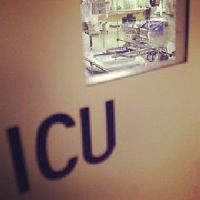While religious or spiritual concerns are discussed during family meetings in intensive care units, healthcare professionals only rarely explore the patient’s or family’s religious or spiritual ideas. The finding, reported in JAMA Internal Medicine, suggests that understanding how often such discussions take place — and what characterises them — is a first step toward clarity regarding best practices of responding to spiritual concerns in advanced illness.
Douglas B. White, MD, MAS, of the University of Pittsburgh School of Medicine, and colleagues analysed audio recordings of 249 physician-family meetings between surrogate decision-makers and healthcare professionals in 13 ICUs at six medical centres across the U.S. between October 2009 and October 2012.
The researchers found that religious or spiritual considerations were discussed in 40 of the 249 family meetings (16.1 percent) and surrogates were the first to raise the religious or spiritual concerns in most cases (26 of 40). When surrogates discussed religious or spiritual considerations, their statements fell into five main categories: reference to their beliefs, including miracles; religious practices; religious community; the notion that the physician is God’s instrument to promote healing; and the interpretation that the end of life is a new beginning for their loved one.
In response to surrogates’ religious or spiritual statements, physicians redirected the conversation to medical considerations; offered to involve hospital spiritual care providers or the patient’s own religious or spiritual community; expressed empathy; acknowledged surrogates’ statements; or very rarely explained their own religious beliefs. In very few family meetings did physicians attempt to further understand surrogates’ beliefs, for example, by asking questions about the patient’s religion.
The JAMA report includes snippets of conversations from the family-physician meetings:
“Although many patients wish to have their religious values incorporated in end-of-life decisions, our research indicates that religious and spiritual consideration are infrequently discussed during physician-family meetings. Developing strategies to ensure adequate exploration and integration of religious and spiritual consideration may be important for improving patient-centred care in ICUs,” the researchers conclude.
Source: JAMA
Image credit: Flickr.com
Douglas B. White, MD, MAS, of the University of Pittsburgh School of Medicine, and colleagues analysed audio recordings of 249 physician-family meetings between surrogate decision-makers and healthcare professionals in 13 ICUs at six medical centres across the U.S. between October 2009 and October 2012.
The researchers found that religious or spiritual considerations were discussed in 40 of the 249 family meetings (16.1 percent) and surrogates were the first to raise the religious or spiritual concerns in most cases (26 of 40). When surrogates discussed religious or spiritual considerations, their statements fell into five main categories: reference to their beliefs, including miracles; religious practices; religious community; the notion that the physician is God’s instrument to promote healing; and the interpretation that the end of life is a new beginning for their loved one.
In response to surrogates’ religious or spiritual statements, physicians redirected the conversation to medical considerations; offered to involve hospital spiritual care providers or the patient’s own religious or spiritual community; expressed empathy; acknowledged surrogates’ statements; or very rarely explained their own religious beliefs. In very few family meetings did physicians attempt to further understand surrogates’ beliefs, for example, by asking questions about the patient’s religion.
The JAMA report includes snippets of conversations from the family-physician meetings:
- One surrogate said, “I know my God’s a big God. And I know he can even guide your guys’ hands to do the right thing.” A physician responded, “We’ll do the best with what we’ve got.”
- After one surrogate said, “Prayer’s not gonna work,” a physician responded, “Hang in there. I know it’s hard. I know.”
“Although many patients wish to have their religious values incorporated in end-of-life decisions, our research indicates that religious and spiritual consideration are infrequently discussed during physician-family meetings. Developing strategies to ensure adequate exploration and integration of religious and spiritual consideration may be important for improving patient-centred care in ICUs,” the researchers conclude.
Source: JAMA
Image credit: Flickr.com
Latest Articles
healthmanagement, ICU, critical care, end-of-life, religion, spirituality
While religious or spiritual concerns are discussed during family meetings in intensive care units, healthcare professionals only rarely explored the patient’s or family’s religious or spiritual ideas.



























